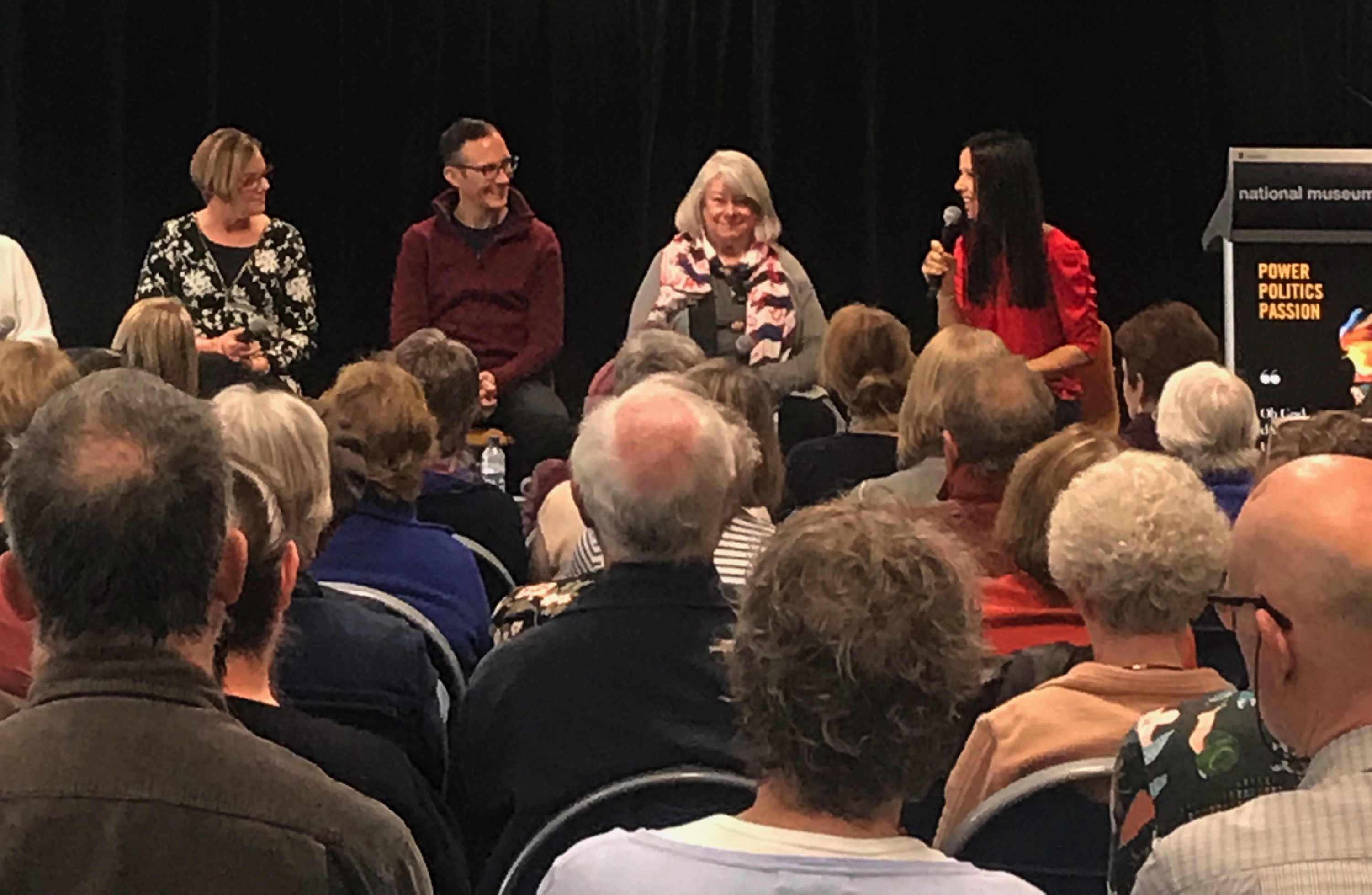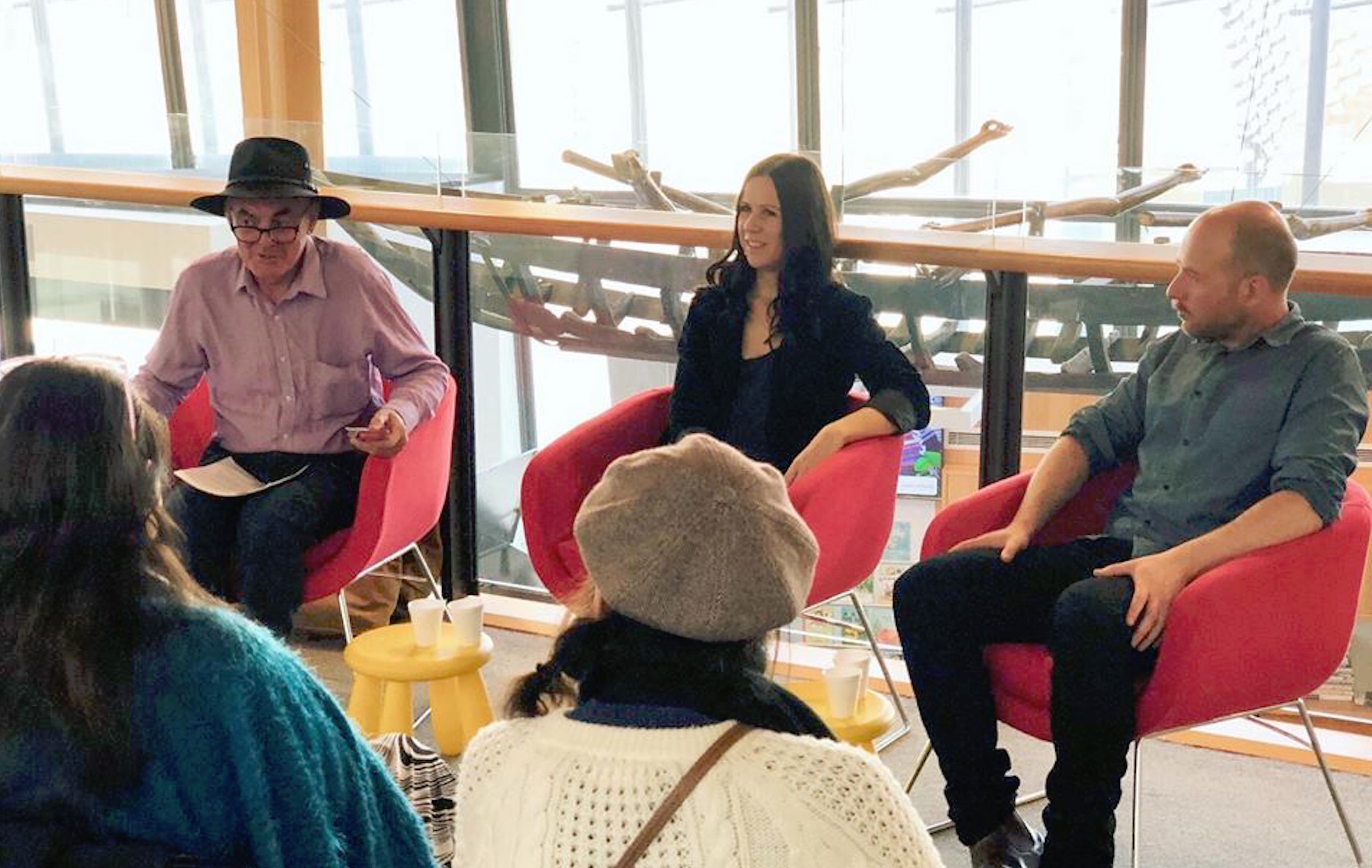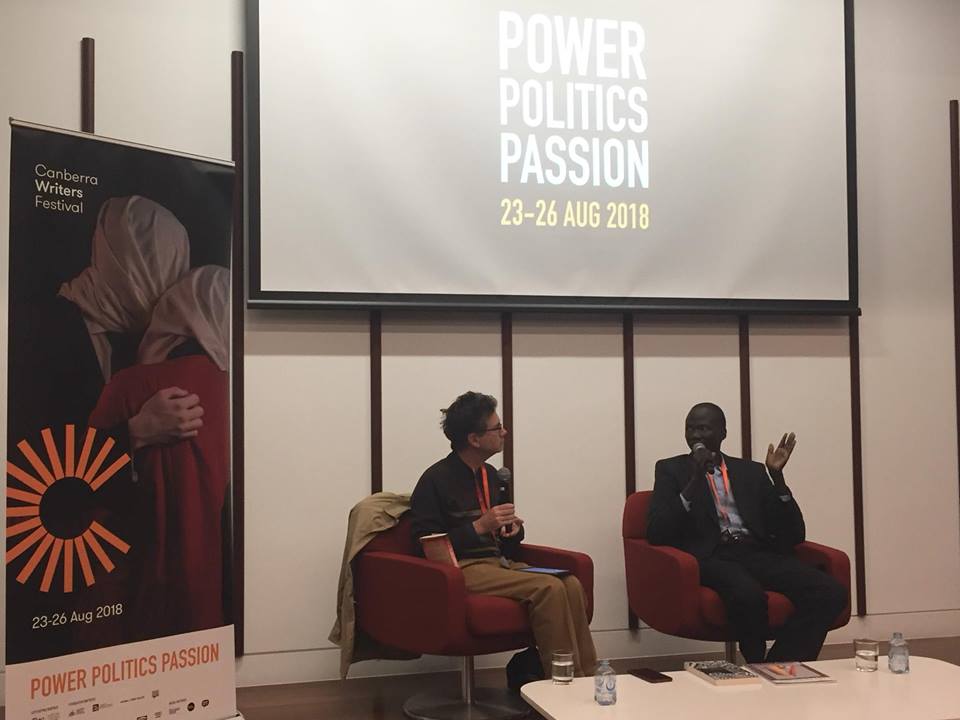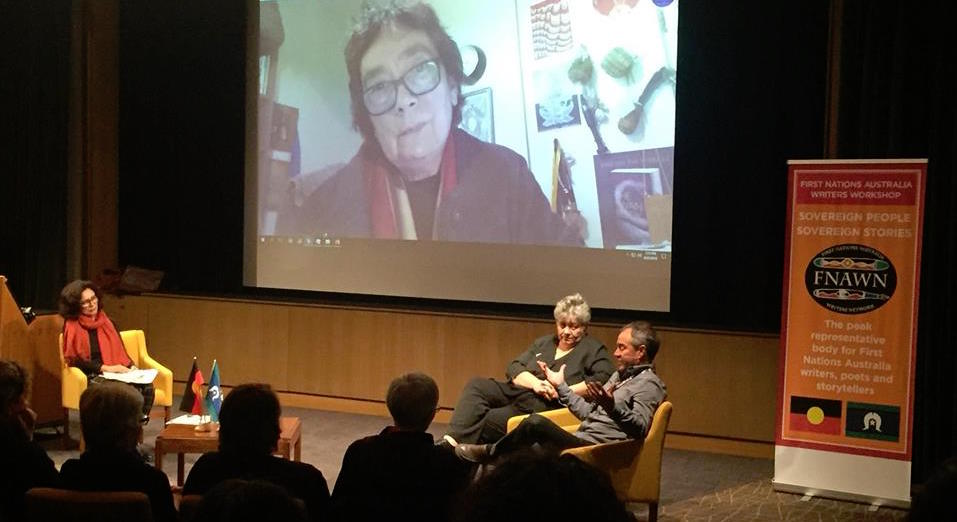It’s festival season again and I chaired the first panel of the Canberra Writers Festival weekend. It sold out all 200 seats within two days of going on sale! How great is that?!
It was the largest panel that I’ve ever chaired, with six writers: Paul Daley, Marion Halligan, Tracey Hawkins, MP Andrew Leigh, Nicole Overall and Marg Wade. As chair, the challenge is always to ensure that everyone gets enough ‘air time’ and that the conversation flows seamlessly. With such a big panel that’s more of a challenge than ever, but the feedback from audience members was so overwhelmingly positive that I’m pretty sure we nailed it. And the panellists each brought such unique and interesting perspectives to the discussion.
We were there to talk about our much-derided capital, using a new anthology, Capital Culture, in which we all have stories, as the springboard. I think it’s fair to say that few countries show as much contempt for their capital as Australia. Canberra bashing is a national pastime and the fact that journalists use ‘Canberra’ as a shorthand for federal parliament doesn’t help. (Paul Daley and Marion Halligan both spoke about being on a mission to change this.) It is often conceded that Canberra is indeed a liveable city, but it is not lovable. According to its detractors, it is a city without a soul.
I was once one of those detractors. While I was living in the UK my family moved from Melbourne to Canberra. I was outraged. ‘I will never live in Canberra!’ I declared. But by the time I had tired of England’s consistently moody weather, I missed my family too much not to join them. I enrolled in a creative writing degree at the University of Canberra. I told myself that I would stay only three years, get my family fix, and then head back to Melbourne. Twenty years later I’m still here. Four of my five brothers have moved back to Melbourne but I love it here. I don’t know if I’ll ever leave (though I’m now wary of grand definitive statements!).
The conversation on the panel was wide-ranging and fascinating. We spoke about what makes Canberra so great (yes, it is), including the wonderful writing community (which I am so grateful for) and the hills and bushland that surround us (which I am equally grateful for). We also talked about the more problematic aspects of our city, with Paul noting that Canberra’s poor are largely rendered invisible. I always find it difficult to provide a detailed account of an event that I’ve been part of, but Sue Terry from Whispering Gums has written up a most excellent summary.
- Signing books after the panel
I also managed to get to some other fascinating sessions. The highlight was a session with asylum seeker, journalist, author and filmmaker Behrouz Boochani, live from Port Moresby, where he was moved several days ago, and his translator Omid Tofighian who was present in the National Library theatre. Omid spoke about how Behrouz has changed his life and been ‘an enormous inspiration’. Indeed, Behrouz is clearly a dignified and intelligent man who has now been imprisoned for six years, simply for seeking asylum.
I was particularly struck by his comments around censorship and that the government’s greatest weapon is to refuse to acknowledge him, or any of the other refugees, by name. In this way the government denies them their identity and the ability to be human. But Behrouz’s work through literature and film has meant that many of us now are able to see the human cost of the government’s inhumane policies. If you haven’t read Behrouz’s book, No Friend but the Mountain, I’d recommend that you get your hands on a copy immediately. It has rightly won two major literary prizes.
 There was so much love in the room for Behrouz, with the session concluding with a standing ovation. I feel privileged to have spent an hour with him, and we would be fortunate indeed to have him as an Australian citizen. Our government continues to disgust me.
There was so much love in the room for Behrouz, with the session concluding with a standing ovation. I feel privileged to have spent an hour with him, and we would be fortunate indeed to have him as an Australian citizen. Our government continues to disgust me.
The last panel of the festival was another highlight. David Marr, Sally Rugg and Sally Wheeler, brilliantly moderated by Nigel Featherstone, spoke about growing up queer. The conversation was both extremely funny and deeply moving. They each shared their coming out stories, which were for the most part ‘disappointing’ in that they weren’t met with any surprise.
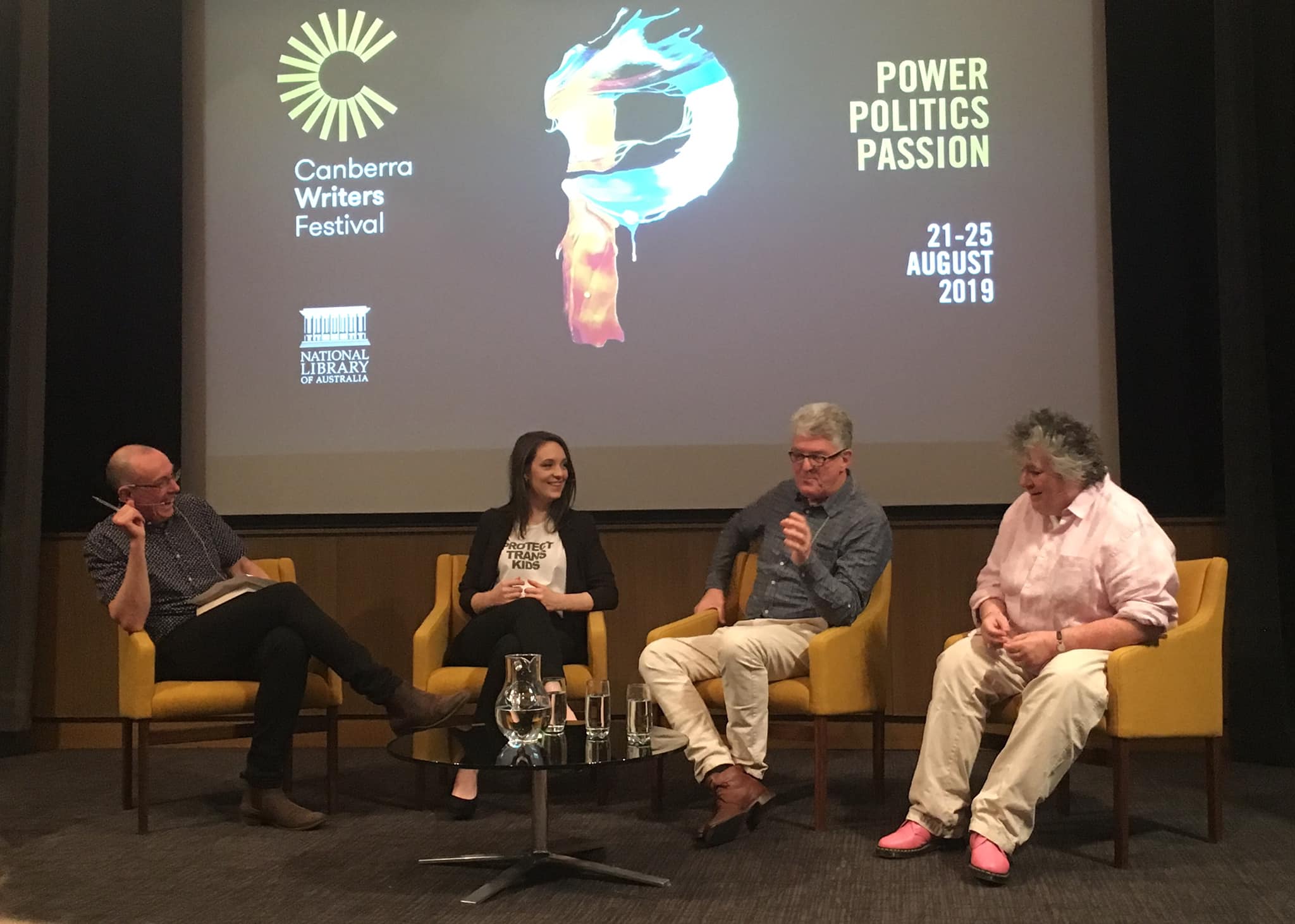 A lot of time was spent discussing the postal survey on marriage equality and the emotional toll that it took. LGBTIQ activist Sally Rugg said: ‘It was utterly shameful and saw the worst in our parliamentary system, but also the best in people.’ David added that the government can never take away the fact that 61.9 per cent of people voted for marriage equality. The panellists all agreed that the legislation was a powerful symbol of equality.
A lot of time was spent discussing the postal survey on marriage equality and the emotional toll that it took. LGBTIQ activist Sally Rugg said: ‘It was utterly shameful and saw the worst in our parliamentary system, but also the best in people.’ David added that the government can never take away the fact that 61.9 per cent of people voted for marriage equality. The panellists all agreed that the legislation was a powerful symbol of equality.
Sally Wheeler compared the Australian process to the English one, which she experienced firsthand, noting that in England the legislation was passed painlessly and without fuss. It left me thinking again about Behrouz Boochani’s assessment of the Australian government, and the means by which it attempts to control its citizens. Behrouz urged us not to be complacent — to be mindful of the ways in which the government is eroding our freedom and liberty.
A good festival should challenge us and get us thinking about the world and our place in it. CWF 2019 certainly did that for me.
Update: The stats from the CWF team are in and it was lovely to hear that the panel I chaired was the second most popular session, behind only Simon Winchester and Richard Fidler. For deatils on the different stats, Whispering Gums has an excellent post that breaks it all down.



